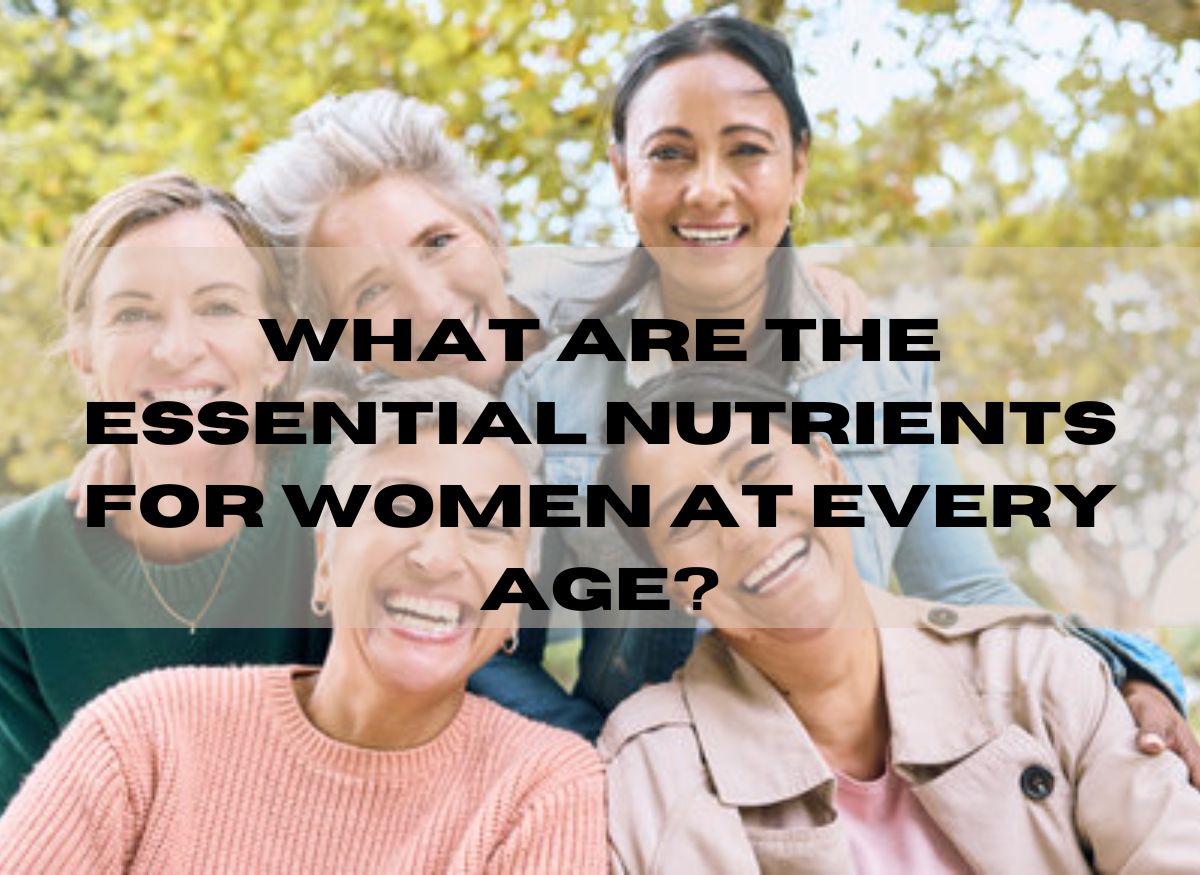
What Are The Essential Nutrients for Women at Every Age?
What is the recommended daily diet? Most people are eagerly searching to know What Are The Essential Nutrients for Women at Every Age? In this article you get detailed information What Are The Essential Nutrients for Women at Every Age?
What Are The Essential Nutrients for Women at Every Age?
In general, compared to men, women should include more nutrients in their diet, especially iron, vitamin B6, magnesium, folate, choline, vitamin B12, zinc, calcium, vitamin D, and iodine. The number of calories you need to consume and the amount of each nutrient your body needs will vary depending on your age, health, and how often you exercise. Most people are eagerly searching to know What Are The Essential Nutrients for Women at Every Age? In this article you get detailed information What Are The Essential Nutrients for Women at Every Age?
Here’s how to meet the recommendations if you’re not currently exercising:
It’s helpful to check the food labels of all the foods you eat to make sure you’re getting enough or too much of the different nutrients. In general, compared to men, women should include more nutrients in their diet, especially iron, vitamin B6, magnesium, folate, choline, vitamin B12, zinc, calcium, vitamin D, and iodine. However, you don’t necessarily need to count all the macronutrients, as this can be very tedious. Mainly focus on eating in a balanced diet instead.
If you’re pregnant or breastfeeding or have any health issues that may affect your diet, consult your doctor. Learn more about nutrition during pregnancy, breastfeeding, and postpartum diet.
while a serving size is the amount of a particular food you should eat at one meal. This amount is usually listed on a nutrition label. In this article you get detailed information What Are The Essential Nutrients for Women at Every Age?
Diets
There are several diets you can follow that naturally contain the healthiest foods. This includes:
-
- Mediterranean diet
- Dash diet
- Mind diet
- Mayo Clinic diet
However, consult with your doctor or registered dietitian before following these diet plans, as they may work for some people but not others.
Dietary supplements
In some cases, you may need to take supplements, especially if you are pregnant or breastfeeding.
Learn about the 10 best dietary supplements for women.
Probiotics
Probiotics themselves are not nutrients. Research suggests that incorporating probiotics into your diet, whether as a food or supplement, can support the absorption of vitamin B12, folate, calcium, zinc, iron, and other nutrients.
Probiotics are found in fermented foods such as:
-
- Yogurt
- Kimchi
- Kombucha
- Sauerkraut
- Miso
- Unpasteurized apple cider vinegar
Certain types of probiotics also help maintain a normal balance of bacteria in the vagina and urinary tract. Talk to your doctor before purchasing to ensure you are getting the probiotic that best suits your needs.Conditions that can affect a woman’s nutritional needs
Certain times in a woman’s life and various health conditions can affect the amount of nutrients she needs.
Adolescence: During adolescence, protein intake is especially important for healthy growth and development. Still, it’s important to pay special attention to eating a varied and healthy diet and avoiding eating disorders to which young women are prone.
Menopause: During this period, women are at increased risk of bone problems such as osteoporosis, so consuming more calcium, vitamin D and magnesium can help reduce this risk.
Older adults: As women age, they should strive to consume more protein. This also helps prevent muscle loss.
Nutritional deficiencies: Some people may not be getting enough of certain nutrients, which may affect the foods you should eat and may require you to take supplements. For example, women are at higher risk for vitamin D deficiency. Studies have also shown that most pregnant women are magnesium deficient and many young women, especially vegetarians, do not get enough choline in their diet.
Additionally, the following common medical conditions may also affect your diet: You may need to adjust your diet or take supplements. Talk to your doctor about dietary guidelines that are right for you.
Heart disease
-
- Cancer, such as breast or ovarian cancer
- Lung disease
- Diabetes
- Polycystic ovarian syndrome (PCOS)
- Endometriosis
- Obesity or high BMI
- Inflammatory bowel disease (IBD)




